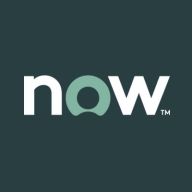

Pega Platform and ServiceNow Orchestration both compete in the Business Process Management (BPM) and Enterprise Service Management (ESM) categories. Pega Platform has the upper hand in case management and a low-code environment, while ServiceNow Orchestration is favored for its IT process automation and user-friendly integrations.
Features: Pega Platform provides robust case management, integration services, and rapid prototyping, offering a unified architecture with a low-code platform for quick implementations and seamless integration across various applications. Its visualization and automation features are also highly valuable. ServiceNow Orchestration is notable for automating business processes with unique service provisioning and seamless integrations across AI and major enterprise tools, making it accessible for IT processes.
Room for Improvement: Pega Platform is often criticized for its complexity, implementation challenges, UI needs, and licensing flexibility. It requires better cloud capabilities and enhanced RPA features. ServiceNow Orchestration faces high module costs and rigid workflows. Improvements are needed for more integrations and flexibility to meet specific customer needs better.
Ease of Deployment and Customer Service: Pega Platform supports various deployment models, including on-premises and clouds, but technical support responsiveness can vary. ServiceNow Orchestration mainly uses public cloud environments and generally fares better in customer support, although unique issues can be challenging to resolve.
Pricing and ROI: Pega Platform is viewed as expensive, with complex licensing based on users and cases, appealing to larger enterprises for higher ROI through efficiencies. ServiceNow Orchestration also has high costs but provides a comprehensive feature set for organizations seeking automation. Both offer significant ROI in capabilities and streamlined operations, despite potentially high costs for budget-conscious buyers.
| Product | Market Share (%) |
|---|---|
| Pega Platform | 6.3% |
| ServiceNow Orchestration | 3.7% |
| Other | 90.0% |


| Company Size | Count |
|---|---|
| Small Business | 9 |
| Midsize Enterprise | 15 |
| Large Enterprise | 68 |
| Company Size | Count |
|---|---|
| Small Business | 3 |
| Midsize Enterprise | 4 |
| Large Enterprise | 8 |
Pega Platform provides flexible business process management with a focus on rapid application development and automation through a low-code approach, enhancing efficiency across sectors.
Pega Platform is renowned for its ability to streamline operations with robust automation features, including robotic process automation and decision-making capabilities. Its intuitive interface and workflow management contribute to a reputation for enhancing business processes. Although users face challenges with integration limitations and high licensing costs, they benefit from rapid deployment and efficient process adaptations. The unified architecture reduces complexity, while case management and integration services support digital transformations in sectors such as banking, insurance, and healthcare.
What are the key features of Pega Platform?In industries like insurance, banking, healthcare, and government, Pega Platform is implemented to automate diverse workflows, supporting initiatives from claims processing to customer onboarding. Enterprises use Pega for case management and digital transformations, valuing its out-of-the-box integrations and real-time reporting capabilities to boost operational automation and enhance customer experiences.
ServiceNow is the fastest-growing enterprise cloud software company in the world above $1 billion (2018 revenue was $2.6 billion, up 36% year over year). We deliver digital workflows that create great experiences and unlock productivity to approximately 5,400 enterprise customers worldwide, including almost 75% of the Fortune 500.
We monitor all Process Automation reviews to prevent fraudulent reviews and keep review quality high. We do not post reviews by company employees or direct competitors. We validate each review for authenticity via cross-reference with LinkedIn, and personal follow-up with the reviewer when necessary.